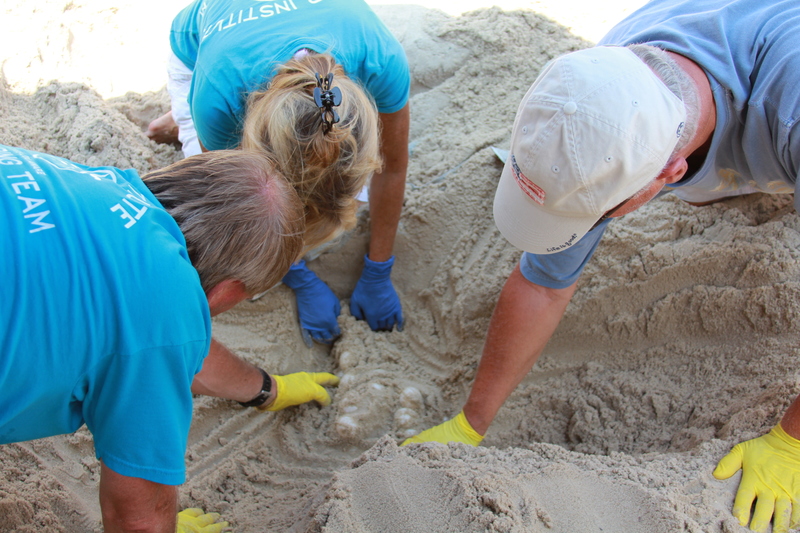First-ever sea turtle nest found at cape
Cape Henlopen State Park's Herring Point was all abuzz Aug. 18 as volunteers uncovered Delaware's first clutch of sea turtle eggs.
A park ranger spotted the loggerhead sea turtle mama at 3 a.m. as she dug a hole next to a Herring Point jetty and laid 194 eggs, said Suzanne Thurman, founder and director of the Marine, Education, Research & Rehabilitation Institute Inc.
She finished her production at 7 a.m. and crawled back to the ocean, leaving her eggs to hatch on their own.
"It was really great the ranger on night patrol was there," she said. "Otherwise we may not have known they were here."
There was a sense of urgency to move the eggs because of the pending high tide. The eggs were too close to the water, Thurman said.
"It needs to be moist, but the water could ultimately wash them away," she said.
Four volunteers went to work around noon, carefully digging around the cordoned off area where the turtle had laid the eggs. Once they found them, they just as carefully put them in a bucket and carted them to a second hole, hand-dug by volunteer Fred Phillips of Lewes.
"The sand needs to be moist for the eggs, and wider at the bottom than the top," he said, while placing the eggs into the new hole in the same order in which they had lain in the original nest.
Once complete, he said they will build a cage around the new hole to keep out foxes and prevent trucks from driving over it.
The incubation period is 45 to 90 days, and Phillips said he'll be one of the volunteers stationed to make sure the little sea turtles make it to the water, if they hatch.
Those chances, though, may be slim.
Thurman said normally 1 in 4 eggs hatch, and it may be less under these circumstances.
She remains hopeful, however.
"If we save them, they'll be the first Delaware sea turtles in history," she said.
















































